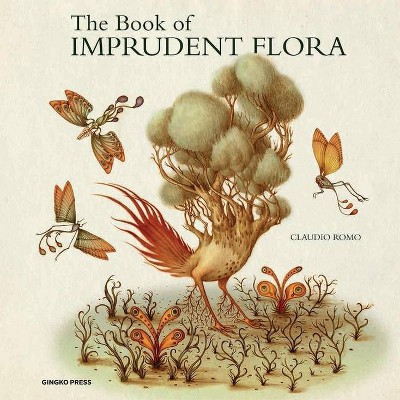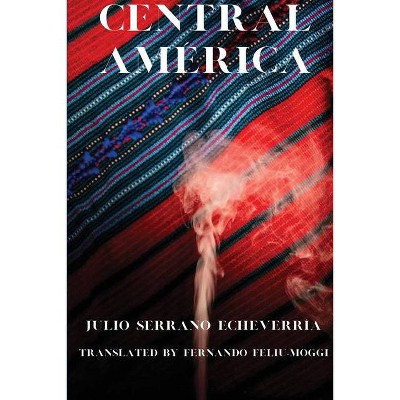Nuestra América - by Claudio Lomnitz (Hardcover)
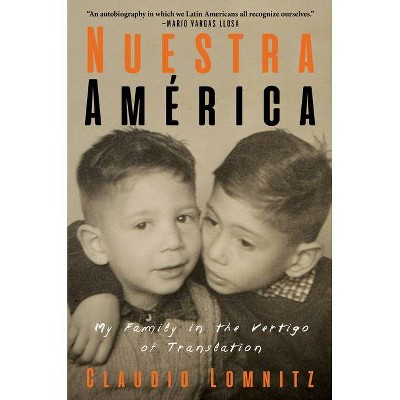
Similar Products
Products of same category from the store
AllProduct info
<p/><br></br><p><b> About the Book </b></p></br></br>"A riveting exploration of the intersecting lines of Jewish and indigenous Latin American thought and culture, by way of a family memoir. In Our America, eminent anthropologist and historian Claudio Lomnitz traces his grandparents' exile from Eastern Europe to South America. At the same time, the book is a pretext to explain and analyze the worldview, culture, and spirit of countries such as Peru, Colombia, and Chile, from the perspective of educated Jewish emigrants imbued with the hope and determination typical of those who escaped Europe in 1920s. Lomnitz's grandparents, who were both trained to defy ghetto life with the pioneering spirit of the early Zionist movement, became intensely involved in the Peruvian leftist intellectual milieu and its practice of connecting Peru's indigenous past to an emancipatory internationalism that included Jewish culture and thought. After being thrown into prison supposedly for their socialist leanings, Lomnitz's grandparents were exiled to Colombia, where they were subject to its scandals, its class system, its political life. Through this lens, Lomnitz explores the almost negligible attention and esteem that South America holds in US public opinion. The story then continues to Chile during World War II, Israel in the 1950s, and finally to Claudio's youth, living with his parents in Berkeley, California, and Mexico City. Writing in a vivid, engaging style, Lomnitz creates an intellectual space that transcends the family memoir genre, where the exploration of one past, origin, and culture is placed in a dialectical relationship with the background of a renowned anthropologist specializing in Latin American history and culture"--<p/><br></br><p><b> Book Synopsis </b></p></br></br><b>NAMED A MOST ANTICIPATED BOOK OF THE YEAR BY <i>KIRKUS REVIEWS</i> <p/>A riveting study of the intersections between Jewish and Latin American culture, this immigrant family memoir recounts history with psychological insight and the immediacy of a thriller.</b> <p/> In <i>Nuestra América</i>, eminent anthropologist and historian Claudio Lomnitz traces his grandparents' exile from Eastern Europe to South America. At the same time, the book is a pretext to explain and analyze the worldview, culture, and spirit of countries such as Peru, Colombia, and Chile, from the perspective of educated Jewish emigrants imbued with the hope and determination typical of those who escaped Europe in the 1920s. <p/> Lomnitz's grandparents, who were both trained to defy ghetto life with the pioneering spirit of the early Zionist movement, became intensely involved in the Peruvian leftist intellectual milieu and its practice of connecting Peru's indigenous past to an emancipatory internationalism that included Jewish culture and thought. After being thrown into prison supposedly for their socialist leanings, Lomnitz's grandparents were exiled to Colombia, where they were subject to its scandals, its class system, its political life. Through this lens, Lomnitz explores the almost negligible attention and esteem that South America holds in US public opinion. The story then continues to Chile during World War II, Israel in the 1950s, and finally to Claudio's youth, living with his parents in Berkeley, California, and Mexico City.<p/><br></br><p><b> Review Quotes </b></p></br></br><br>"Lomnitz's fluent integration of memoir and reportage--reminiscent of Daniel Mendelsohn's <i>The Lost</i>--carries forward this intellectual tradition of emancipatory political vision: In diaspora we come together." --<i>New York Times Book Review</i> <p/> "Remarkable...a gripping family history...Lomnitz does a masterful job." --<i>New York Review of Books</i> <p/>"In the wake of mass displacement, a family history like this one...is a means of confronting and redefining the concepts of homeland, belonging, and history." --<i>The New Yorker</i> <p/>"[Lomnitz] takes his rich family history and builds a narrative of universal significance...There is no end of intriguing anecdotes in these pages...A masterpiece of historical and personal investigation." --<i>Kirkus Reviews</i> (starred review) <p/> "An intelligent book about a family's struggle to find a home they could call 'our America.'...a timely reminder of the humanity of immigrants...riveting." --<i>Foreword Reviews</i> <p/>"An autobiography in which we Latin Americans all recognize ourselves." --Mario Vargas Llosa, winner of the 2010 Nobel Prize in Literature <p/>"<i>Nuestra América</i> means 'Our America, ' and that collective pronoun encompasses not just Claudio Lomnitz's family but multitudes who have wound up on South America's shores. It is about history, language, ideas and how they shape, in the sweep of time, our eccentric individual lives. We're all familiar with the memoir that brings a dissolving old family snapshot to life; Lomnitz combines that snapshot with a panoramic picture of Spanish America and Europe from the nineteenth century to present time. Among other things, <i>Nuestra América</i> will give you a distilled portrait of Peru that, for this reader, made that enigmatic country more vivid and comprehensible than ever. The real treat of this extraordinary book is Lomnitz's acute lucidity and intelligence. Read it--you will be richly rewarded." --Michael Greenberg, author of <i>Hurry Down Sunshine</i> <p/>"Claudio Lomnitz's riveting family memoir is an account of trauma and displacement, but also one of resilience, passion, and even joy. From Romania to Peru to Colombia to Israel to California to Mexico and beyond, his forebears, vividly portrayed, lived lives of profound political and intellectual engagement and were intimate with important historical actors. <i>Nuestra América</i> joins Philippe Sands' <i>East West Street</i> and Edmund de Waal's <i>The Hare with Amber Eyes, </i> bringing to light untold narratives of the Jewish diaspora." --Claire Messud, author of <i>The Burning Girl</i> <p/>"An extraordinary journey--vital, absorbing, elegiac, and so finely honed." --Philippe Sands, author of <i>The Ratline</i> and <i>East West Street</i> <p/>"This is a brilliant and beautifully written book. Based on personal memories, archival research, and impassioned listening, Lomnitz narrates how his Jewish family coped with violence and dispersion, and reflects on the depths out of which they found strength to begin life anew. The story of his grandfather's collaboration with Mariátegui in Peru uncovers an inspiring chapter on the creation of intellectual and political communities. Lomnitz brings new meaning to <i>Nuestra América</i> as a necessary place for active <i>new beginnings</i>, which he has inherited." --Arcadio Díaz-Quiñones, Princeton University, author of <i>La memoria rota</i> <p/>"This book is a search for the author's intellectual and spiritual sources in his family history. It includes the story of his grandfather, and how through a life of (often forced) emigration, between seven countries on three continents, speaking eight languages, he forged his own universalist variant of the remarkable secular Jewish humanist tradition--one part of a legacy that clearly lives on in the perceptive insights and wide sympathy of the grandson's ethnography. It's a really fascinating book!" --Charles Taylor, author of <i>A Secular Age</i> and recipient of the Kyoto Prize <p/>"<i>Nuestra América: My Family in the Vertigo of Translation</i> is a remarkable book--part family history, part intellectual autobiography, part eyewitness account of World War II, the Holocaust, the kibbutzim, part reflections on exile. With narrative mastery, Claudio Lomnitz leads us on an unsuspected journey from the outskirts of Bessarabia to Latin America and the United States, with pit stops in Israel and the Berkeley campus. A must-read for those intrigued by the vagaries of 20th-century history, with its diasporas, migrations, settlements, and resettlements." --Rubén Gallo, Princeton University, author of <i>Freud's Mexico </i>and <i>Mexican Modernity</i> <p/>"Here, the author and the book make each other. By producing archives previously unbeknownst to him, Claudio Lomnitz enters into conversation with his own book to investigate himself and his family while building a theory of history: if this book puts the family as the center of that theory of history it is not just because Claudio is an anthropologist; it is not just because he was invaded by unbearable nostalgia; it is not just because he has suffered the loss of members of his family; it is not just because. It is <i>also</i> because the family as a random dynamic of people linked by consanguinity and affinity--that is, not as an institution, because institutions are elective, optional structures--is an impossible actor of historical events; its members are unpredictable, they wander around intimacy and distance, they cannot judge why despite being such perfect strangers they are so much alike." --Jesús R. Velasco, Professor of Medieval and Early Modern Studies at Yale University and author of <i>Dead Voice: Law, Philosophy, and Fiction in the Iberian Middle Ages</i> <p/>"<i>Nuestra América</i> is profound, riveting, and moving. Claudio Lomnitz reconstructs his family's history vividly, and brilliantly weaves the lives and fates of German and Romanian Jews who fled to South America into the complex web of Latin American culture, history, and politics. As he interprets how several generations of his family struggled with migration, survival, hopes, ideals, identity, community and tradition--in Chile, Peru, Colombia, Mexico, and Europe and Israel--Lomnitz illuminates a poorly understood chapter in twentieth-century Jewish history and sheds light on the human condition and the quest for meaning amidst dark times." --Leon Botstein, President of Bard College <p/>"This extraordinary book illuminates the agency of people in dark times, through transatlantic, multilingual, and pluricultural stories. <i>Nuestra América</i> interweaves the archive of the history of the Jewish diaspora with that of Lomnitz's own family. Against the tragic background of global twentieth-century events, we learn the workings of individual lives and how these individuals deal with decision-making at the most critical moments of social and political experience." --Graciela Montaldo, Columbia University, co-editor of <i>The Argentina Reader <p/></i>"In times of danger, writes Claudio Lomnitz, peril is at once collective and deeply personal. His <i>Nuestra América</i> is both an enthralling family chronicle and a stunning intellectual history of those condemned to bear witness to the scarcely suppressed barbarisms of 20th-century nationalism in Europe and beyond; of racism, statelessness, and genocide, of evils epic and banal. In their eternal search for security, these exiles developed an acute understanding of the fascism that haunts modern statecraft everywhere. And, as intellectuals rising from the ashes, they worked to build a worldwide secular humanism, a vision of freedom for which the promise of America, both south and north, was the elusive ideal." --Jean Comaroff, Alfred North Whitehead Professor of African and African American Studies and of Anthropology, Oppenheimer Research Fellow, Harvard University <p/>"This is a beautiful, poetic book in the voice of a wise, erudite, and insightful narrator. Like a great novel, it illuminates the souls of its protagonists and the times in which they lived. Like a great ethnography, it is world-making. I have read many memoirs, and this one is among the most captivating. If the gods still communicated directly with humankind through doves or angels or oracles, they would say, read <i>Nuestra América</i>." --Thomas W. Laqueur, Professor Emeritus, UC Berkeley, and author of <i>Work of the Dead: A Cultural History of Mortal Remains</i> <p/>"Only someone with the extraordinary gifts of Claudio Lomnitz as both anthropologist and historian could produce a work as this, in which culture and history, family and individuality, all interact to create a unique kind of autobiography: not as life-story but as <i>Bildung</i>, as character-formation--written, moreover, with tenderness and talent. I loved it." --Marshall Sahlins, author of <i>The Western Illusion of Human Nature</i> and, with David Graeber, <i>On Kings</i> <p/>"What do our family histories reveal and conceal? As he explores the migrations of his relatives between Central Europe, South America, and Israel, Claudio Lomnitz provides a poignant, finely wrought meditation on displacement, loss, and linguistic genealogies. <i>Nuestra América</i> invites us to think hard about what we can recognize, what we can know, and what we can protect when it comes to those we call kin." --Stéphane Gerson, Professor of French Studies, French, and History, New York University <p/>"In <i>Nuestra América</i> Claudio Lomnitz reveals his strengths as a historian, as well as his disarming vulnerabilities in a process of self-discovery, while unearthing a family saga worthy of a great Latin American novel. Lomnitz's memoir is not just about his own family. It honors the lives of so many other spirited men and women who started new lives, learned new languages, and embraced new cultures while trying to keep a connection with their Jewish heritage, even as they kept quiet about the most traumatic events of their personal and collective experiences to protect their children and grandchildren from their silent despair." --Efraín Kristal, Distinguished Professor of Comparative Literature, UCLA<br><p/><br></br><p><b> About the Author </b></p></br></br><b>Claudio Lomnitz</b> is an anthropologist, historian, and critic who works broadly on Latin American culture and politics. He is Professor of Anthropology at Columbia University. Lomnitz's books include <i>Death and the Idea of Mexico</i> and <i>The Return of Comrade Ricardo Flores Magón</i>, among many others. As a regular columnist in the Mexico City paper <i>La Jornada</i> and an award-winning dramaturgist, he is committed to bringing historical and anthropological understanding into public debate.
Price History
Price Archive shows prices from various stores, lets you see history and find the cheapest. There is no actual sale on the website. For all support, inquiry and suggestion messagescommunication@pricearchive.us
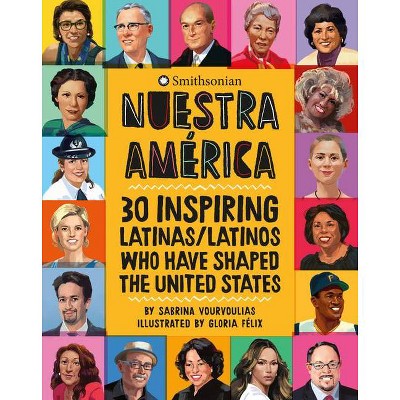
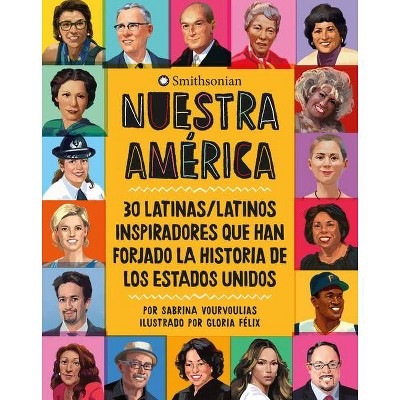
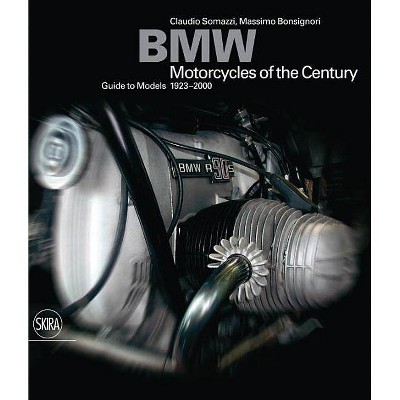


![Alma Nuestra [LP] - VINYL](https://pisces.bbystatic.com/image2/BestBuy_US/images/products/3499/34991757_sa.jpg)
